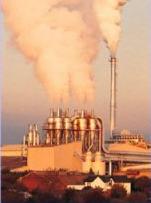
Radioactivity levels in the Irish Sea are at their lowest levels since the 1970s, according to a new report by the Isle of Man’s Government Laboratory.
Low levels of the radioactive isotope Caesium-137 were found in all the seafood tested by the Manx scientists. But the report states that the levels are well below EU-recommended maximum permitted levels.
Low levels of another contaminant, Technetium-99, are found in all Manx lobster. This "will result in only a very small radiation exposure to people who eat lobster on a regular basis," the scientists say. Certain seaweeds are prone to accumulating Technetium-99, "however there is no radiological hazard to the general public using the Island’s beaches, as the Tc-99 content of seaweed is far too low to give any measurable skin contact exposure, from handling seaweed."
The Isle of Man is exactly 32 miles from Sellafield (pictured) and 32 miles from the Irish coast.
The main commercial activity at Sellafield is the reprocessing of spent nuclear fuel, which results in liquid and gaseous radioactive waste. Most of this waste is stored on site, but some gaseous waste is vented into the atmosphere and some liquid waste is discharged into the Irish Sea.
 A few environmental events happening this week:
A few environmental events happening this week: 3. Thursday, November 4: UCD's Earth Sciences Institute will host a seminar on Smart Cities, addressed by Michael Roche of IBM and chaired by Dublin City Council planner Dick Gleeson. It's at 12.30pm in the Wood Quay bunkers.
3. Thursday, November 4: UCD's Earth Sciences Institute will host a seminar on Smart Cities, addressed by Michael Roche of IBM and chaired by Dublin City Council planner Dick Gleeson. It's at 12.30pm in the Wood Quay bunkers.




